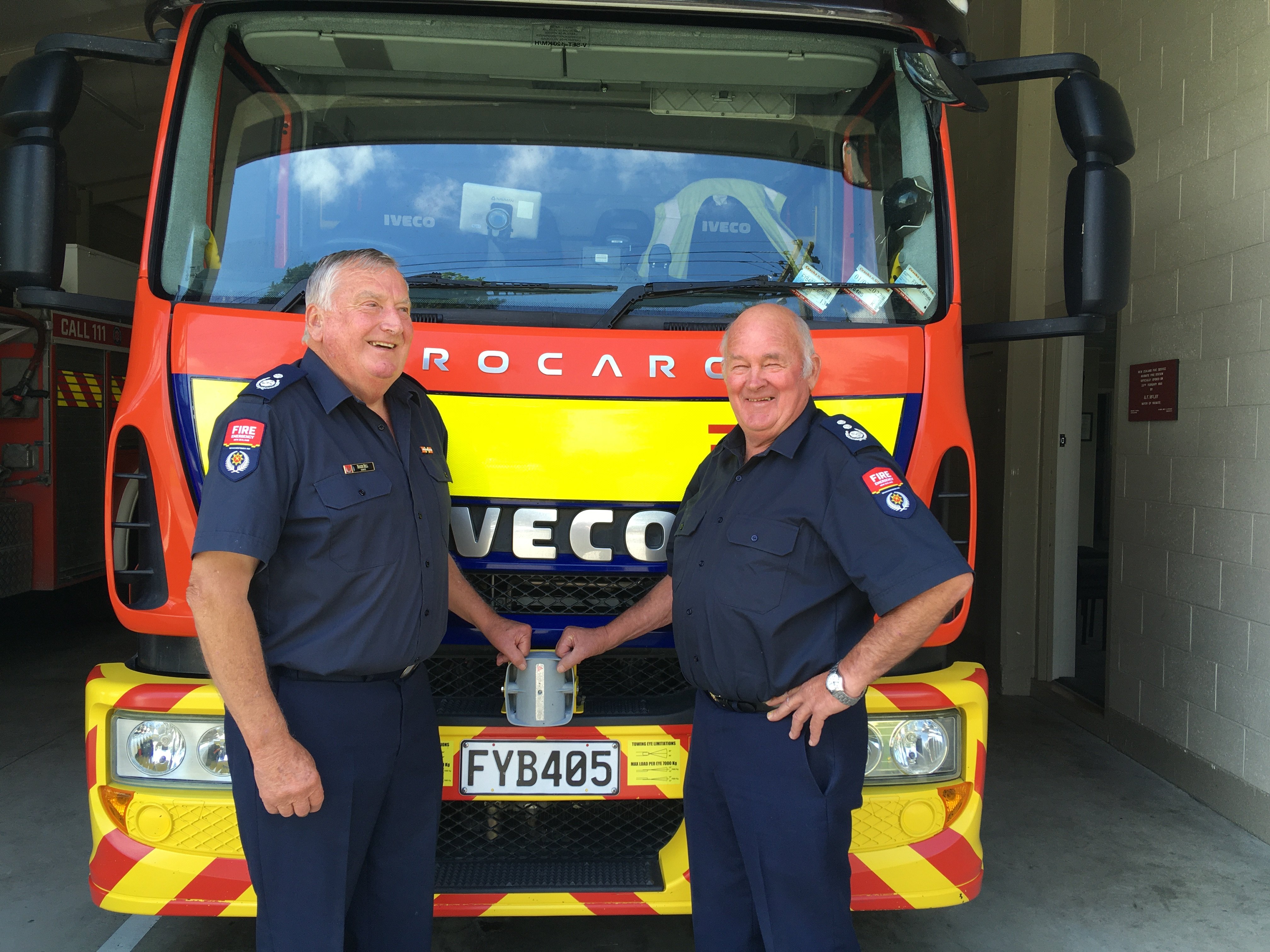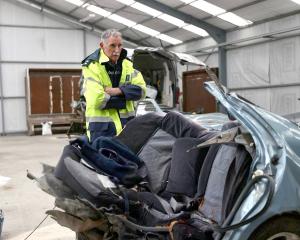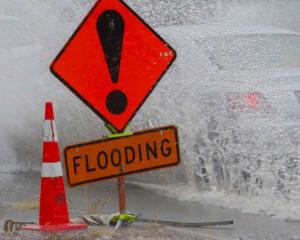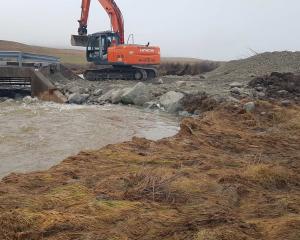
As of midnight on December 31, Chief Fire Officer Duncan Lyall and deputy chief Roger Bell will be hanging up their helmets and boots and taking a step back from the organisation that has been a big part of their lives for more than 50 years.
At 72, Mr Lyall has notched up a little over 53 years’ service with the brigade, and Mr Bell, at 71, a little over 52 years.
More than half a century ago, the pair were both boy scouts, and "Fuller Fire Flag" competitions were their early introduction to fire brigade life.
They were among a group of six to eight in 1968 who applied to join the brigade, and both worked their way up through the ranks over the years. They began as probationary firefighters, eventually each serving as third officer and deputy chief — Mr Lyall to chief Murray Hamilton — and Mr Bell to Mr Lyall when he was appointed chief fire officer in 1995.
Although Mr Bell and Mr Lyall may be retiring, their names will live on. The Iveco appliance is named Roger, and the Hino tanker is Duncan — both names painted atop the cabs, and likely to remain following their departure.
It had not been an easy decision, but they believed the time was right, and it was the right decision to step down together to leave the way clear for their successors, new chief Steve Pali and deputy Andrew Emerson.The pair said the brigade was in good heart, as there was a lot of younger people coming through.
"At some stage you have to step aside and let someone else take over. Times have changed, and getting out of bed in the middle of the night isn’t quite as exciting as it used to be."
Mr Bell said they had had the best of times in the fire brigade. Change in recent years had been rapid and, they felt, not always for the better.
"We joined the brigade to fight fires, not to be a paramedic, and it’s heading down that track."
Fires now make up probably only 10% of the brigade’s callouts. Medical callouts, assistance and car crashes were an increasing part of the role.
But it was the fires they tended to remember; the Debonaire furniture factory fire — at the time Mr Lyall was factory manager — the Studholme pea factory fire, and more recently, the fire at Te Kiteroa.
The tragedies remain in their minds; three lives lost in the fire above the Savoy tearooms on the main street, and deaths in fires in Shearman St and Mill Rd.
There have been many deaths, on the roads also, Mr Lyall said.
"One year was a really bad year, between MVAs and heart attacks, we had 19 deaths in a year.
"I drive the road from Timaru to Waimate a fair bit, and think, ‘I’ve been there, been there ... "
Support for firefighters dealing with the aftermath of death had improved greatly, Mr Bell said.
"It wasn’t so much in the old days. We’d just have a couple of beers at the pub and talk it over. Now, we get good support from Fenz dealing with that sort of thing."
Also improved was the equipment provided.
"In our day, you didn’t get much equipment and you didn’t get much money. We did a lot of fundraising."
The brigade bought its first set of rescue gear, and Rotary donated the first sets of breathing apparatus. An early "appliance" was a Land Rover, which had firefighters piled into the back for jobs around town.
Brigade members sold raffle tickets at pubs, collected bottles and glass, and carted hay to raise funds for necessary equipment.
They ruined many pairs of trousers, too, Mr Bell said.
"In our early days, uniforms weren’t provided, you’d go to a fire in your own clothes. We had a helmet, a jacket, a belt with an axe in it, and a pair of boots.
"And all you had to do when we first joined was have your axe and helmet on, so in summer time, you might be in shorts and a T-shirt, or maybe a singlet.
"But we still got the job done."
However, firefighters received a small sum each year to ensure their boots always looked good, Mr Bell said.
"Once a year, the fire authority used to give us £2 as "nugget money" to polish your boots. The night we’d get it, we’d go to the pub, get a feed at the pie cart on the way home, and still have change in our pocket."
Brigade members still raise funds, mostly through cutting firewood, but now, it is more likely to be to donate to charity or to make improvements to the station.
Mr Lyall said fundraising efforts were good for the team.
"It was good for the brigade that we all worked together on something different from fires."
There were many memories and stories to tell — or not tell — of appliances catching fire, or setting fire to dry grass, or rolling into a ditch.
"I wouldn’t say we’ve been squeaky clean ... "
Cat rescues did happen, but there was a trick of the trade; firefighters suggested the worried owner popped inside to get some cat food ... and while they were not watching, a quick burst of water in the direction of puss usually saw it scamper down to ground level.
Both acknowledged the role their wives and families had played — and the impact on their families.
"You could be having tea, or at a party ... and all of a sudden you have got to go. It’s a cost to families and a cost to employers."
It would be a big change to no longer be at the whim of pagers, cellphones and the town’s siren, although they admitted they were likely to sneak down to the station on the odd occasion.
"There have been so many good times, we’ve had all the good times. We wish the new chief and deputy all the best, and we’re always here to help."











